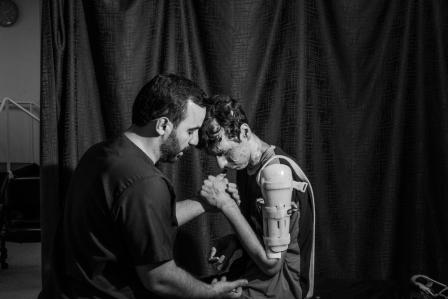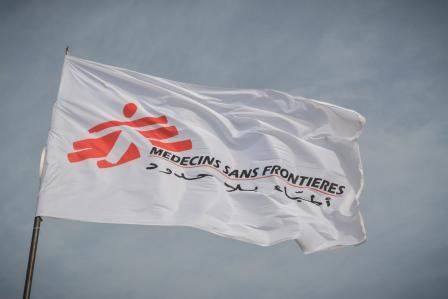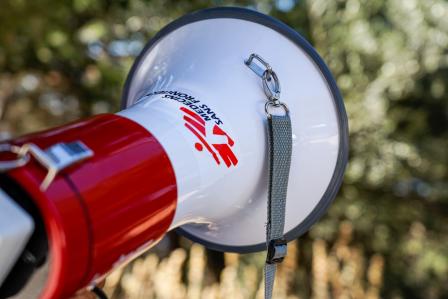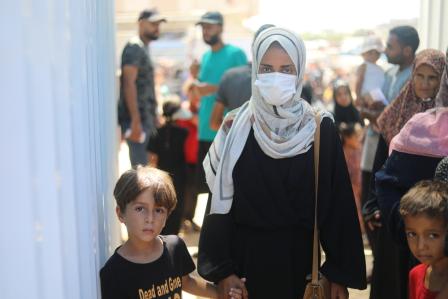Tepi Barat: Akses ke Layanan Medis Terancam oleh Intensifikasi Serangan Israel
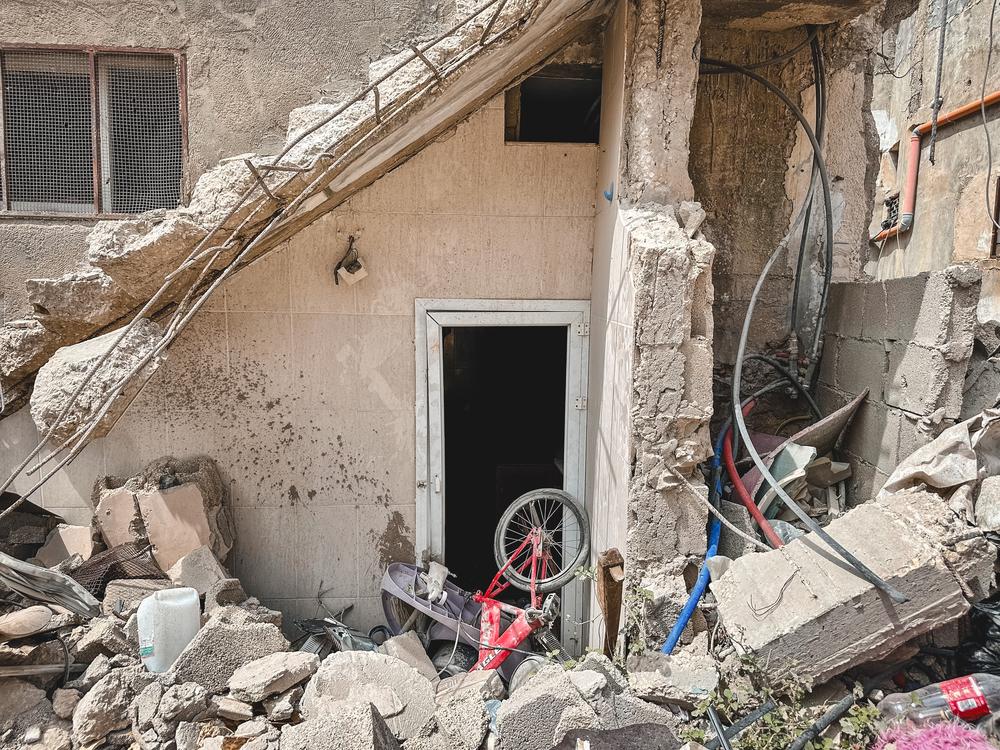
Sebuah rumah di kamp Jenin rusak beberapa kali oleh pasukan Israel selama serangan militer brutal mereka, termasuk oleh buldoser selama serangan yang berlangsung dari tanggal 21 hingga 23 Mei. Wilayah Palestina, Mei 2024. © Oday Alshobaki/MSF
Yerusalem – Serangan militer besar-besaran yang dilancarkan oleh pasukan Israel di Tepi Barat Palestina, termasuk serangan berulang terhadap petugas kesehatan, ambulans, dan fasilitas medis, sangat membatasi akses masyarakat terhadap layanan kesehatan. Hal ini disampaikan oleh organisasi medis internasional Médecins Sans Frontières / Doctors Without Borders (MSF).
Serangan Israel, yang dimulai pada dini hari tanggal 28 Agustus, juga telah menyebabkan kerusakan berskala luas pada infrastruktur jalan, jaringan listrik, dan pasokan air, yang secara serius menghambat kemampuan Doctors Without Borders untuk menjalankan kegiatan medis di kota Jenin dan Tulkarm.
Akses medis di Tulkarm dan kamp-kamp pengungsi di sekitarnya sangat terbatas, dengan kerusakan infrastruktur yang meluas. Hampir tidak mungkin mencapai mereka yang membutuhkan. Serangan ini terjadi tanpa peringatan, sehingga banyak warga yang tidak siap. Beberapa ibu bahkan melaporkan kekurangan makanan untuk bayi mereka. Warga merasa terjebak dan terisolasi.Staf Doctors Without Borders
“Pergerakan tim kami sangat terbatas, sehingga kami tidak bisa memberikan bantuan langsung seperti biasanya. Saat ini, kami hanya dapat memberikan dukungan psikologis darurat di Tulkarm dan mendistribusikan perlengkapan medis, susu bayi, serta popok di Jenin," ujar Caroline Willemen, Koordinator Proyek Doctors Without Borders.
In Hebron, Israeli forces have blocked access into and out of the city, preventing Doctors Without Borders teams from running mobile clinics and supporting Doctors Without Borders' maternity located outside the city. Inside the city, Doctors Without Borders clinic is operational, but people report that blockades and the feeling of insecurity prevent patients from accessing it.
In Jenin and Tulkarm, ambulances and health workers have been repeatedly attacked, seriously compromising medical activities. After eight days of incursion, needs are on the rise, particularly in the camps, and more humanitarian response is needed.
“Israeli armored vehicles are stationed at the entrances to the Doctors Without Borders-supported Khalil Suleiman hospital in Jenin, and hospital staff are struggling to maintain activities amid electricity and water shortages,” says Willemen.
Another paramedic trained by Doctors Without Borders describes how Israeli soldiers entered his home and threatened him: “Israeli forces broke down my door. I informed them several times that I was a volunteer for medical organisations, but they dragged me out and kicked my back before pointing a weapon at my head.”
The recent incursions on the West Bank are the most intense since 2002. As of 5 September, 39 Palestinians have been killed and 140 injured since 28 August, according to the Ministry of Health. These attacks are part of a wider pattern of violence that has sharply deteriorated since the start of the war in Gaza. More than 652 Palestinians have been killed in the West Bank since October 2023.
Doctors Without Borders calls for civilians, health workers, ambulances, health facilities and hospitals to be protected at all costs. As the occupying power, Israeli authorities must uphold their obligations under international humanitarian law to guarantee unimpeded access to healthcare and other essential services in the West Bank.




